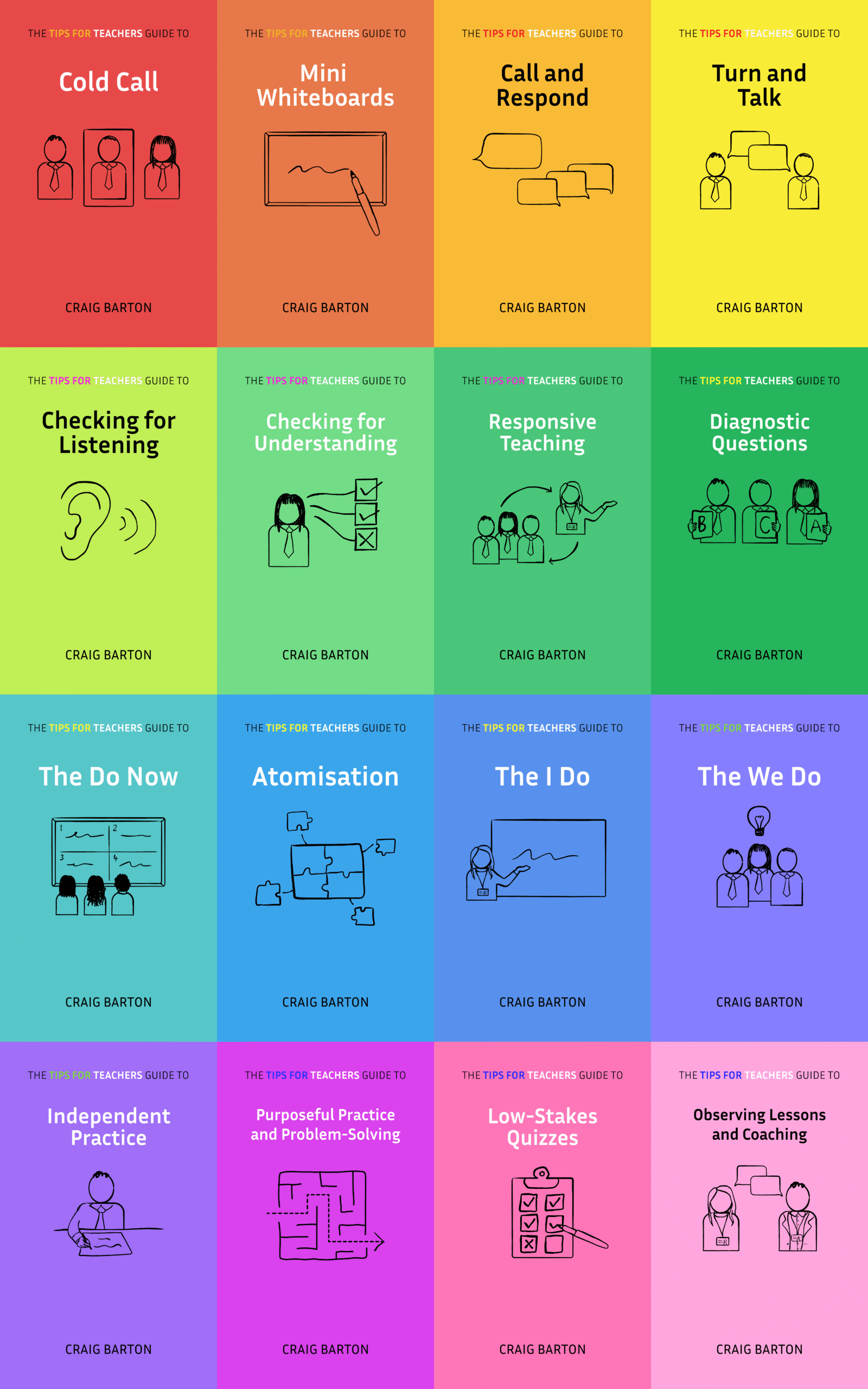
Craig Barton offers CPD on a whole host of areas, including checking for understanding, responsive teaching, retrieval practice, and atomisation. This CPD can be delivered in person or remotely. For a much lower price, you can purchase pre-recorded online versions with a bespoke introduction by Craig that you can show to all your colleagues as many times as you like for 12 months.
For more information and to discuss a purchase, please get in touch with Katie:
katie@thelearningline.co.uk
Tel. 01522 708897
FAQs
You might find these answers helpful when considering a booking, or after a booking has been made.
Testimonials
I just wanted to pass on my heartfelt thanks for the two sessions you ran this Monday. I can honestly say that so many members of staff were captivated by your ideas and how they can be implemented into our classrooms. The greatest accolade I can give is many have requested to have you every year at our training day!
Finlay Ridgwell – Sigma Trust
Just wanted to thank you for taking the time to come to Aberdeen for yesterday’s CPD event. Of the 85 particpants there, there is not one who left the room without leaving positive feedback on the day. It is a very rare opportunity for staff to come together to get subject specific CPD and this was much appreciated as was the quality of the event delivery and your practical and actionable strategies. There are now a few actions for us as a group to take forward in order to make things happen in the classrooms.
Fiona Jamieson – Aberdeen City Council
On behalf of our schools, I want to express our gratitude and thanks for your time and expertise in delivering the maths keynote session as part of our Curriculum Advancement Day. The initial feedback is really positive and the discussions and ideas sparked by your session have already begun shaping some next steps; we are excited to see how your session will influence our work moving forward and secure brilliant checking for understanding in Lift classrooms!
Deborah McCarthy – LIFT schools
Biography and Photo
I often get asked to provide a biography and a photo to help promote the workshops I am involved in. Please find them below.
Bio
Craig Barton loves teaching, doing, speaking and thinking about mathematics. He taught maths in secondary schools for 15 years, and was TES Maths Adviser for 10 years. He is now the Head of Education at Eedi. Craig is the author of three best-selling books: “How I wish I’d taught maths”, “Reflect, Expect, Check, Explain” and “Tips for Teachers”, the host of the Mr Barton Maths podcast and the Tips for Teachers podcast, and the creator of far too many websites, including mrbartonmaths.com, diagnosticquestions.com, variationtheory.com, ssddproblems.com, dqaday.com and mathsvenns.com. In 2020, he was appointed as a Visiting Fellow at the Mathematics Education Centre at the University of Loughborough. Craig has been lucky enough to teach maths and work with teachers and students all over the world. His two proudest achievements are convincing Kate to marry him (and stay married), and being the father to his wonderful boys, Isaac and Jacob.
Photo
If you need a high-quality image, then you can download one here.









